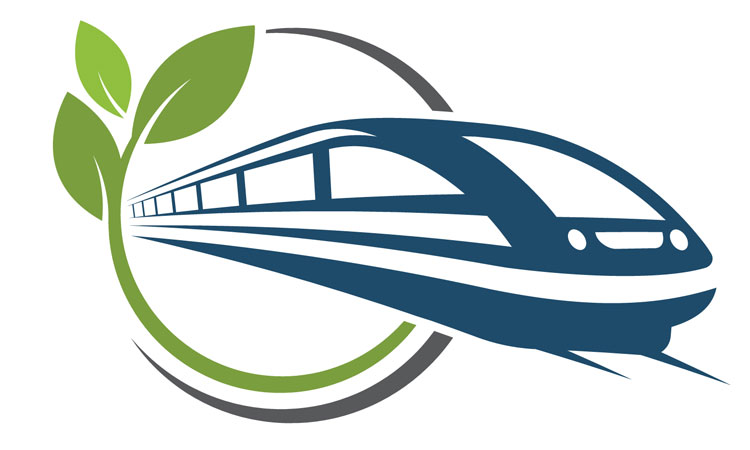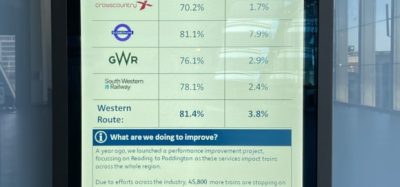“Cummins continues to invest in, and develop, clean diesel engines”
Posted: 26 July 2021 | Cummins | No comments yet
In an interview for Global Railway Review, Regina Barringer, General Manager for Global Rail and Defense in Cummins’ Power Systems business, explains the benefits that harnessing new fuel technologies can bring to the green, sustainable ambitions of the rail industry.


To what extent do you think emerging technologies in energy are helping the rail industry transform itself into a high-tech sector?
Rail is an early adopter of technologies, especially those that reduce emissions and lower total cost of ownership while maintaining reliability and performance. PrevenTech® is an example of connectivity products Cummins offers and our newest remote engine monitoring and reporting solution. By combining engine hardware, digital technologies, and data-driven expert analysis, PrevenTech® delivers proactive recommendations that allow customers to increase equipment availability, improve safety and reliability, and enhance operational efficiency.
Clean diesel is also a major topic of discussion. Cummins continues to invest in, and develop, clean diesel engines that will serve the industry for decades to come. Our hydrogen solution portfolio offers zero emissions hydrogen fuel cell system for propulsions and auxiliary power, green hydrogen production systems, and hydrogen bulk storage and on-application tank solutions.
Where do you think the rail sector fits in being ‘ahead of the curve’ when it comes to the development of alternative fuel engines for rolling stock?
Rail is demonstrating early adoption of hydrogen fuel cell technology. Cummins is powering the first hydrogen fuel cell powered rail application. Long asset life drives a favourable total cost of ownership to deliver a sustainable and cost-effective solution when compared to catenary/overhead wire rail-based solutions.
…we have been testing HVO fuels in some of our engines, giving customers choices on fuel type.
Clean diesel technology still has a long runway in certain rail applications and markets. Cummins engines can operate on biodiesel, which has a lower GHG. In addition, we have been testing HVO fuels in some of our engines, giving customers choices on fuel type. Cummins’ global distribution footprint is extensive with certified technicians, genuine parts sales, and service. Our strong support network and in-depth engineering analytical tools guide our technicians to the best solution for the customers’ equipment and can support both diesel and hydrogen installations.
Do you think it is better to have a diverse set of power system technologies in the rail market, rather than just one or two dominating technologies?
Absolutely. Offering a broad portfolio of technologies and architecture solutions allows Cummins to better serve diverse markets, differing requirements, and unique applications. Meeting the customer where they are and understanding what they need allows us to offer a tailored solution. We understand customers have differing needs based on their fleet age, adoption appetite for new technology, and trade-offs between modernisation and cost. We don’t follow a one size fits all approach.
How is Cummins’ technology helping to power the world’s first hydrogen-powered passenger train?
Alstom developed a passenger train powered by Cummins hydrogen fuel cell technology. Cummins worked with Alstom to supply and install the hydrogen fuel cell solution. This train was operational in 2016 and entered commercial service in 2018. Alstom’s iLint is the first serial production of hydrogen powered trains, which started operation this year in Lower Saxony, Germany. Alstom will supply additional hydrogen trains throughout this year and next for additional Rhine Main region routes. There is interest from other German federal states and in other European countries to use the train for non-electrified tracks.
Cummins recently announced ground-breaking of a new facility in Europe to support the production of hydrogen fuel cell systems.
Based on Cummins hydrogen fuel cell solution’s performance in the 2016 demo, followed by series production, Alstom also recently announced additional orders in Italy and France. All orders will be powered by Cummins hydrogen fuel cell system.
Cummins recently announced ground-breaking of a new facility in Europe to support the production of hydrogen fuel cell systems. This facility will produce hydrogen fuel cells for use in the trains we will power for the European rail market.
What can the rail sector learn from other transportation industries in the development of alternative fuel engines?
Bringing innovation and reliability to our products to meet and exceed customer expectations is our top priority. Having over 100 years of power train development experience allows us to build upon what we have learned in the past from our technology and customer experiences and take that forward to not only being a leader in diesel solutions, but also beyond diesel solutions. Our extensive history in power systems development in many transportation and industrial markets leads us to focus on systems integration collaboration with our OEM partner to deliver an optimised solution for the customer. We tailor our solutions based on the customers’ key requirements. We build upon our applicable integration learning to optimise powertrains solutions.
How is Cummins planning to help the rail sector become even more environmentally friendly in the future?
Cummins has a long legacy in supporting the rail industry, starting from the 1930s. We continue to invest in a portfolio of solutions to solve evolving challenges for the industry that range from clean diesel to zero emissions. We know that customers want reliable, sustainable, efficient, and innovative solution choices to meet their changing needs. In the diesel space, we currently pair our engines with the SCR technology for lower emissions, while achieving better fuel economy. We will also continue to promote our remote engine monitoring through Cummins’ proprietary PrevenTech® system, which identifies potential issues and alerts operators so maintenance can be performed, and the system can operate at peak efficiency.
We continue to invest in a portfolio of solutions to solve evolving challenges for the industry that range from clean diesel to zero emissions.
To support the rail industry’s commitment to driving toward more sustainable solutions, we continue the expansion of hydrogen fuel systems, including the recent announcement of Cummins’ new facility in Herten, Germany to support the production of fuel cell systems for the hundreds of hydrogen trains to be produced over the next several years in Europe. The facility is currently prioritising assembly of fuel cell systems, while actively working on plans to expand to support fuel cell stack refurbishment.
We will continue to strive for excellence through clean diesel and hydrogen fuel cell options for our customers.


Related topics
Diesel Locomotives, Digitalisation, Electric/Hybrid Rolling Stock






